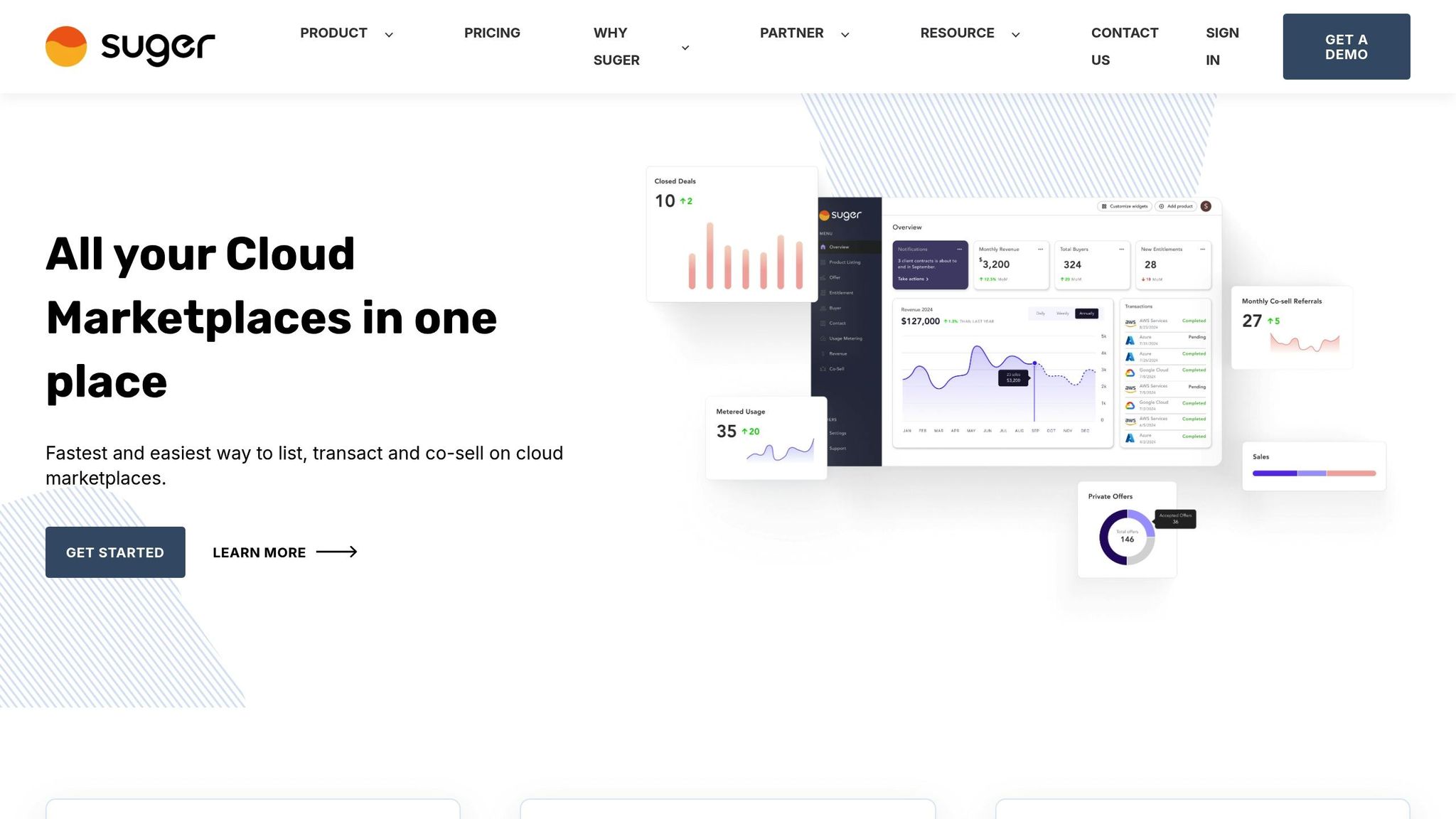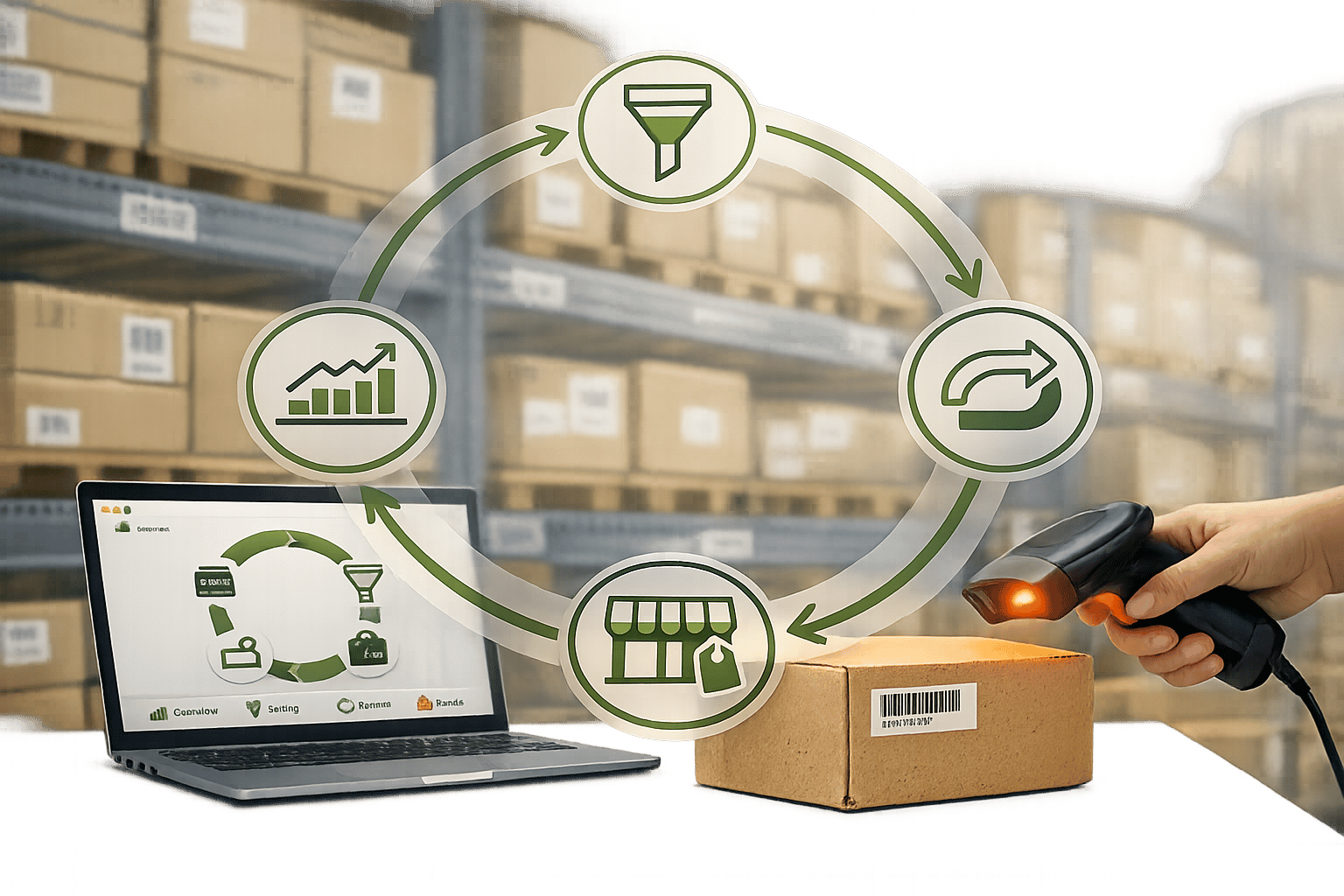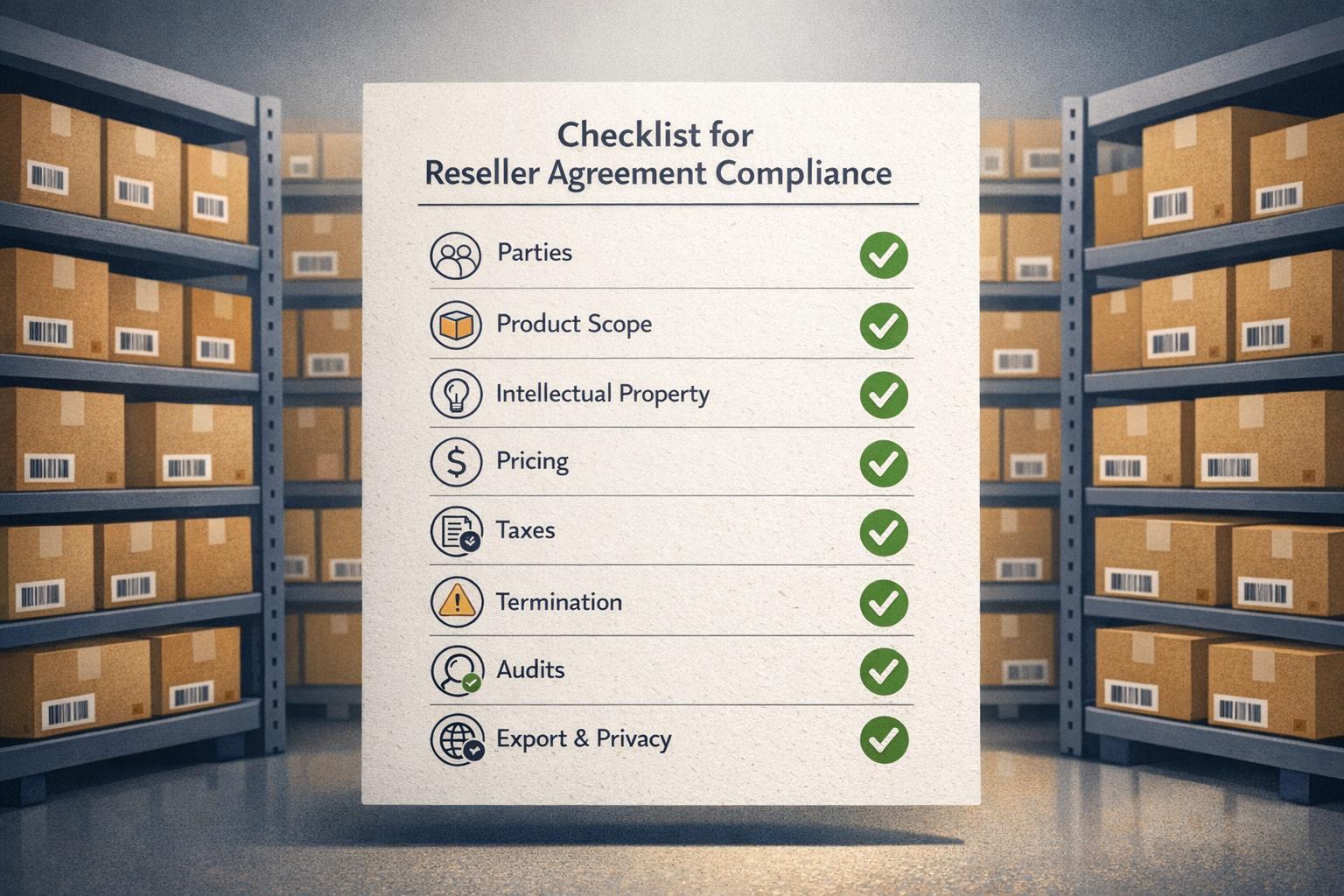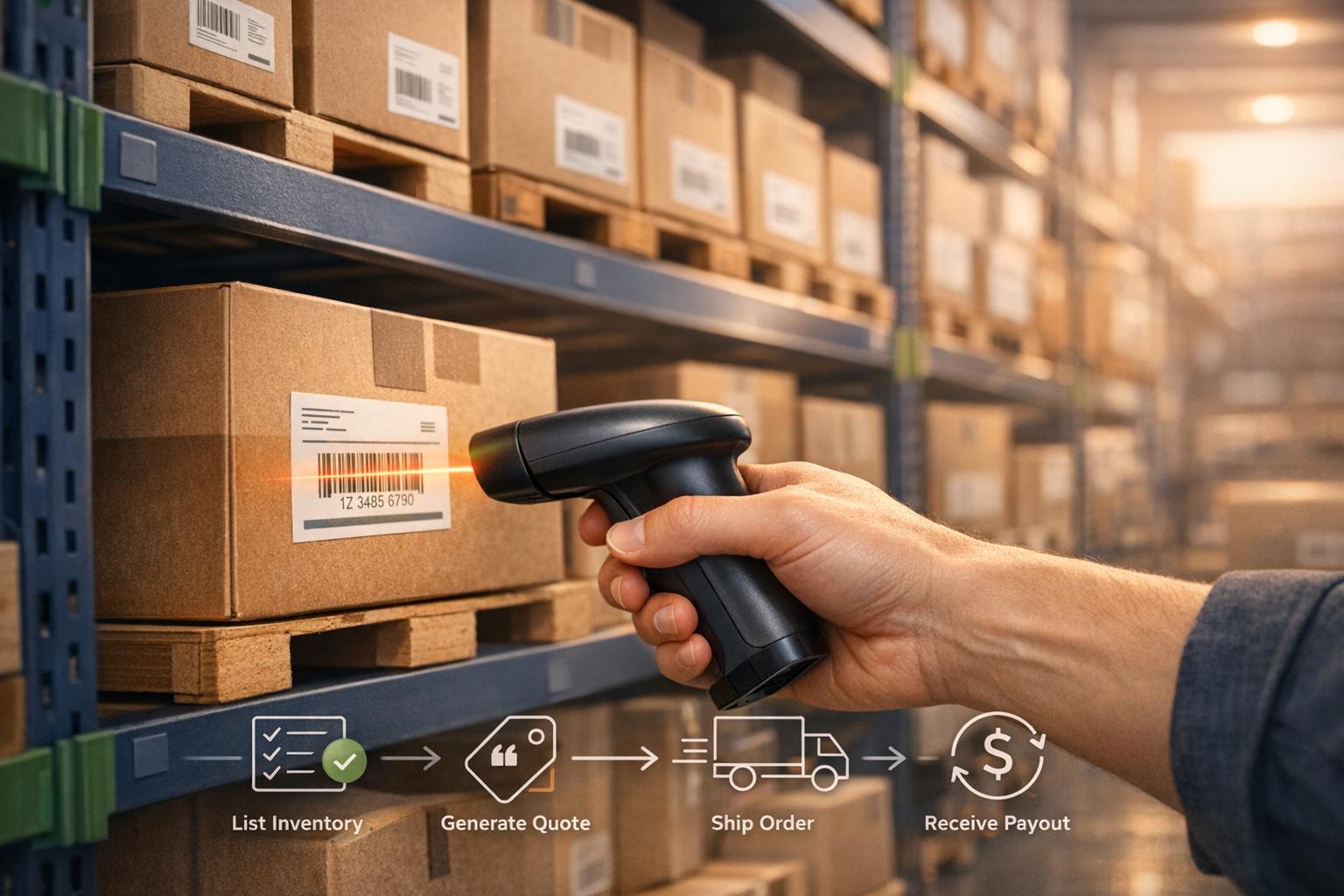In B2B marketplaces, trust is everything. With deals often reaching millions of dollars, buyers rely heavily on trust signals to make decisions. But here’s the problem: traditional trust indicators like star ratings and badges aren’t built for AI systems, which are increasingly driving purchasing decisions. AI needs structured, machine-readable trust data - like delivery performance metrics or verified payment histories - that can be processed programmatically.
Key points:
- AI-driven decisions dominate: By 2025, 25% of enterprises using generative AI will deploy AI agents, rising to 50% by 2027.
- Traditional trust signals fall short: Static badges and ratings lack the precision AI requires, creating inefficiencies and risks.
- Machine-readable trust solves this: Structured data formats (JSON, XML, APIs) ensure trust signals are clear, accurate, and usable by both AI and humans.
Platforms like ForthClear are leading the way by embedding detailed trust data into APIs, enabling faster, more reliable transactions for buyers and sellers alike. If B2B marketplaces don’t adopt machine-readable trust, they risk losing relevance in the AI-driven economy.
The Future of B2B Sales on Marketplaces and AI | With Jon Yoo of Suger

Problems with Current Trust Signals
The trust signals we’ve relied on for years are falling behind in today’s automated world. As AI-driven systems and automated procurement processes take center stage, these traditional indicators are becoming less effective. Instead of helping businesses make faster, smarter decisions, they’re causing delays and increasing the chances of mistakes. Let’s break down the key issues.
Issues with Static and Unstructured Data
The biggest flaw with current trust signals lies in their static and unstructured nature. Take a stroll through any B2B marketplace, and you’ll find badges and star ratings plastered everywhere. While these might look reassuring, they offer little to no value for AI systems tasked with making purchasing decisions.
For instance, a "Verified Seller" badge paired with a 4.2-star rating might seem informative, but it lacks the specifics AI needs to evaluate a supplier. What does "on time" delivery actually mean? Does it mean 3 days, 7 days, or something else entirely? What percentage of orders had defects? And how fast is "quickly" when it comes to response times?
AI thrives on precise, structured data like average delivery times, defect rates, and response speeds. Without these details, it can’t accurately gauge supplier reliability. This problem becomes even more pressing in areas like liquidation and surplus inventory management, where decisions need to be made quickly. Buyers need to know if a seller can handle large orders, meet tight deadlines, and provide accurate inventory counts. Unfortunately, most trust signals don’t offer this level of detail in a format that AI can process.
To make matters worse, trust signals vary wildly across platforms. One marketplace might use a 5-star rating system, while another opts for a 10-point scale. Certification badges often lack standardized definitions or verification processes. This inconsistency forces buyers to manually reconcile data, slowing down decision-making and creating unnecessary headaches. These shortcomings directly impact business outcomes, as we’ll explore next.
How Poor Trust Data Affects Business Decisions
The lack of machine-readable trust data disrupts decision-making in critical transactions. With 80% of the B2B buying journey now self-directed and digital-first, buyers are relying heavily on trust signals. But when these signals are incomplete or misleading, they can cause major problems.
Procurement teams often waste valuable time manually verifying unreliable or inconsistent trust signals. In fast-paced markets like surplus inventory liquidation, these delays can cost businesses profitable opportunities. A slow decision could mean missing out on a great deal entirely.
The stakes are even higher when you consider that only 3% of B2B prospects trust sales representatives on first contact. This puts enormous pressure on digital trust signals to bridge the gap. But when these signals are inadequate, suppliers without machine-readable trust data risk being ignored altogether. With 93% of B2B go-to-market leaders already using AI in 2024 and 78% planning to increase AI investments in 2025, suppliers who fail to adapt are at a clear disadvantage.
The financial impact of poor trust data goes beyond missed deals. Buyers relying on incomplete information might choose less reliable suppliers, leading to delayed deliveries, quality issues, or unexpected costs. On the flip side, sellers with excellent track records but weak digital trust signals lose out on opportunities they deserve.
This creates a damaging cycle. When buyers or AI systems encounter missing or conflicting trust data, they see it as a red flag - even if the supplier’s actual performance is top-notch. The result? Reliable suppliers are pushed aside, while those with superficial but polished profiles gain the upper hand. It’s a system that undermines credibility and fairness in the marketplace.
What Is Machine-Readable Trust
Machine-readable trust transforms traditional trust signals into structured, actionable data that both AI systems and humans can easily interpret. By embedding verifiable information directly into APIs, this approach ensures that trust signals are not only accessible but also functional for automated systems, while remaining transparent for human users.
As AI increasingly influences vendor selection, structured data becomes essential. For example, metrics like "98.5% on-time delivery over 12 months" or "2.3-hour average response time" provide the clarity AI systems need to evaluate suppliers. This is especially critical as projections indicate that by 2025, 25% of enterprises using generative AI will deploy AI agents, a figure expected to rise to 50% by 2027. These AI agents depend on precise, structured trust data to operate effectively, making machine-readable trust a key factor for suppliers aiming to stay competitive in automated procurement.
For buyers, this approach simplifies decision-making by offering standardized and comparable metrics. Instead of deciphering various rating systems or vague trust indicators, buyers gain access to clear, actionable data, allowing for quicker and more informed choices. Let’s dive into the core data points that define this system.
Core Elements of Machine-Readable Trust
Machine-readable trust is built on several key data points, each contributing to a comprehensive evaluation of suppliers. Here’s a closer look:
- Seller reliability data: This goes beyond generic labels like "reliable" by providing precise metrics such as delivery performance, order accuracy, and historical fulfillment records. For instance, instead of a vague "reliable seller" tag, the data might say, "delivered 847 of 850 orders on time in the last 90 days" or "maintained 99.2% inventory accuracy over 6 months."
- Escrow usage patterns: Particularly relevant for high-value B2B transactions, this data highlights how often a seller uses secure payment methods, their history with escrow services, and any disputes or resolutions. This is especially useful for assessing financial risk in liquidation or surplus inventory deals.
- Fulfillment history: Detailed information about a supplier’s operations, including average processing times, shipping methods, packaging quality, and handling of special requirements, helps buyers gauge reliability.
- Return and refund policies: Instead of lengthy policy documents, structured data offers clear metrics like "processes 95% of returns within 48 hours" or "maintains a 4.8/5.0 satisfaction rating for dispute resolution." This makes policies easier to compare and evaluate.
- Pricing transparency: Structured data on pricing consistency, discount patterns, and bulk pricing tiers allows AI systems to assess cost-effectiveness and find the best deals without manual price comparisons.
- Communication responsiveness: Metrics like average response times, preferred communication channels, and availability across time zones are invaluable, especially for time-sensitive transactions in surplus inventory markets.
Visual Trust Signals vs Machine-Readable Trust Signals
| Aspect | Visual Trust Signals | Machine-Readable Trust Signals |
|---|---|---|
| Data Format | Images, badges, star ratings | Structured JSON/XML data in APIs |
| AI Accessibility | Requires human interpretation | AI-processable |
| Precision Level | Vague ("Excellent seller") | Specific ("98.7% on-time delivery") |
| Verification | Often unverifiable claims | Linked to verifiable data sources |
| Consistency | Varies across platforms | Standardized formats and metrics |
| Update Frequency | Static or infrequently updated | Real-time or regularly refreshed |
| Comparison Ability | Difficult to compare objectively | Enables automated comparison |
| Decision Speed | Requires manual evaluation | Enables instant automated decisions |
While visual trust signals are designed to appeal to human users, machine-readable signals provide AI with the precise data it needs to make informed decisions.
The move toward machine-readable trust doesn’t mean visual elements are obsolete. Instead, it ensures that the data supporting visual cues is accessible in a structured format for both humans and AI. For instance, a supplier might still display a "Top Rated" badge, but machine-readable trust ensures that the performance metrics behind that badge - like delivery rates or customer satisfaction scores - are available through structured data feeds.
This dual approach is becoming increasingly important. A survey shows that 86% of B2B buyers are open to switching suppliers if another platform offers a better experience. Suppliers who combine engaging visual presentations with robust machine-readable data are better positioned to succeed with both human buyers and AI-driven procurement systems.
How ForthClear Uses Machine-Readable Trust

To overcome the limitations of static trust data, ForthClear incorporates machine-readable trust into every aspect of its platform. By embedding structured trust metadata into its listing APIs, the platform ensures that both AI systems and human buyers can access accurate and up-to-date supplier performance data.
ForthClear’s strategy revolves around maintaining data accuracy and integrity. These elements are essential for organizations relying on supplier data for decision-making. By ensuring that the data accurately reflects real-world supplier performance, ForthClear enables both AI-driven systems and human users to make informed purchasing decisions with confidence.
Adding Trust Data to Listing APIs
ForthClear integrates detailed trust data directly into its listing APIs. When suppliers post surplus inventory on the platform, the API automatically includes structured information, such as verified supplier status, escrow payment history, and fulfillment performance metrics.
To maintain accuracy, ForthClear employs rigorous data validation processes. For instance, when a supplier claims a specific performance metric, the system cross-checks it against order fulfillment records, shipping confirmations, and buyer feedback. This ensures that suppliers’ claims align with their actual performance.
Access controls are another critical component of ForthClear’s system. By limiting access to sensitive trust data, the platform prevents unauthorized modifications, ensuring that only verified transactions and authenticated metrics contribute to a supplier’s trust profile.
Key trust elements embedded in the API include:
- Escrow usage verification: Tracks how often suppliers use ForthClear’s secure payment system, monitors dispute resolution history, and calculates average transaction completion times.
- Communication responsiveness metrics: Measures supplier response times, preferred communication channels, and availability across time zones.
- Pricing transparency data: Provides historical pricing trends, bulk discount tiers, and consistency metrics to evaluate cost efficiency.
ForthClear also employs continuous data profiling to detect patterns, trends, and anomalies that could indicate inaccuracies or inconsistencies in supplier data. This ongoing analysis ensures that trust data remains both current and reliable as supplier performance evolves.
Helping AI and Human Users Make Better Decisions
By standardizing trust data through its robust APIs, ForthClear empowers both automated systems and human decision-makers. The structured data allows procurement systems and buyers to make quicker, more reliable decisions. AI systems, for example, can instantly analyze supplier reliability, escrow usage, and fulfillment history without needing manual intervention.
For AI, machine-readable trust data eliminates ambiguity. Instead of interpreting vague ratings or badges, AI tools access precise metrics - such as delivery reliability and inventory accuracy - enabling smarter, data-driven evaluations.
ForthClear’s verification processes are pivotal in combating supplier fraud, which is increasingly critical. A 2024 study revealed that 75% of organizations have faced at least one instance of deepfake-related fraud. Identity verification is not just about compliance - it’s a necessary safeguard for businesses.
Human buyers also gain significant advantages. They no longer need to spend time researching suppliers or navigating inconsistent rating systems. Instead, they can easily compare concrete performance data across multiple suppliers. ForthClear’s transparency ensures that customers understand how trust scores are calculated and provides access to the underlying data supporting those scores. This approach gives buyers both confidence and control over their decisions.
Additionally, ForthClear’s system continuously verifies and updates trust metrics as new transaction data becomes available. This ensures that both AI systems and human users rely on accurate, up-to-date supplier performance data, avoiding outdated or static trust signals. In high-stakes B2B transactions, having access to timely and precise trust information is indispensable.
sbb-itb-bc600a0
Why Machine-Readable Trust Gives B2B Marketplaces an Advantage
Machine-readable trust takes B2B marketplaces to the next level, transforming them from basic listing sites into highly competitive platforms. By integrating structured trust data directly into their systems, these platforms gain an edge that traditional marketplaces can’t match. As automation and AI-driven procurement grow, this edge becomes even sharper.
The stats highlight this shift. In 2023, nearly 60% of B2B buyers made over a quarter of their purchases on online marketplaces, but 83% of them abandon purchases if suitable payment terms aren’t available at checkout. This growing reliance on online marketplaces creates massive opportunities for platforms that can deliver trust-based experiences with secure payment options.
"High-trust organisations outperform low-trust ones because trust enables smoother and faster transactions." - Stephen Covey
The gap between high-trust and low-trust platforms widens further with AI adoption. 47% of B2B search queries are now answered directly by AI systems, bypassing external websites entirely. Marketplaces equipped with machine-readable trust data are well-positioned to thrive in this AI-driven environment. This capability enhances transaction speed and reliability, making these platforms preferred choices for automated decision-making.
Making Transactions Faster and More Reliable
Machine-readable trust eliminates much of the friction in B2B transactions by automating the research and verification processes that often slow down purchases. With structured trust data readily available, both human buyers and AI systems can make informed decisions in minutes instead of days.
This speed advantage comes from automating traditionally manual tasks like background checks and verification. Buyers no longer need to spend hours digging into supplier credentials. Instead, they can instantly access verified metrics like performance history, escrow usage, and fulfillment reliability - streamlining the decision-making process.
Payment processing also benefits. Buyers can bypass the back-and-forth of negotiating payment terms by instantly viewing verified payment histories, escrow options, and dispute resolution records. This seamless access to trust data means transactions flow more smoothly.
The rise of automation in procurement is evident: bot traffic to corporate websites increased by 49% in the first quarter of 2025. AI systems are taking over supplier evaluations, quickly analyzing trust signals without human intervention.
Reliability improves as well. Embedding trust signals directly into APIs ensures that information is always up-to-date and accurate. Suppliers can’t manipulate the data since it’s continuously verified against real transactions. This transparency builds confidence, especially when companies using AI-optimized, structured content report a 34% boost in lead quality. Precise trust metrics help align buyer needs with supplier capabilities, improving outcomes for both sides.
Meeting US Business Standards and Expectations
US businesses face increasingly strict compliance and transparency requirements, making machine-readable trust a must-have for B2B marketplaces. Faster transactions also help meet these expectations, ensuring that companies can operate efficiently while staying compliant.
Data security is now a cornerstone of brand reputation. Machine-readable trust addresses concerns around security and payments by offering verifiable credentials, compliance certifications, and audit trails. When 49% of consumers interpret the absence of trust badges as a red flag for fraud, and 31% cite credit card theft as their top online shopping concern, structured trust data reassures buyers with instant access to secure payment practices and proper security standards.
Compliance becomes easier, too. With structured trust data, businesses can meet regulations like GDPR and PCI DSS without manually tracking compliance for each supplier. APIs provide access to standardized compliance data, saving time and reducing errors.
Machine-readable trust also fosters transparency by standardizing trust metrics across suppliers. Buyers no longer have to guess at vague ratings or inconsistent claims. Instead, they can rely on clear, comparable data to make decisions.
The competitive edge is undeniable. Over 90% of US sellers already conduct some of their business through marketplaces. Machine-readable trust supports ethical and transparent practices, which are critical for building long-term buyer confidence. This trust not only encourages repeat business but also strengthens customer loyalty - key factors for sustained success in the B2B marketplace space. Platforms that prioritize trust become more than just transaction facilitators; they become trusted partners in their buyers’ success.
Conclusion: Why B2B Marketplaces Need Machine-Readable Trust Now
The era of AI-driven procurement is no longer a distant concept - it's happening now. With 63% of websites receiving AI traffic and AI systems taking the lead on vendor selection and initial negotiations, B2B marketplaces are at a crossroads: they can either embrace machine-readable trust or risk falling behind.
Here’s the challenge: while only 14% of consumers are satisfied with online purchasing, over 90% of business buyers say customer experience is just as important as the product itself. This disconnect highlights a huge opportunity for B2B marketplaces to step up. By offering structured, verifiable trust data, they can serve both AI systems and human buyers, creating a more reliable and efficient experience.
Old-school visual trust signals, like badges or testimonials, no longer cut it in a world where automated systems dominate. AI now relies on structured data to evaluate credibility, making static visual cues nearly irrelevant. The marketplaces that stick to these outdated methods risk becoming invisible to the algorithms shaping B2B purchasing decisions.
"The B2B websites that thrive in the coming years will be those that successfully build trust with both human and AI visitors, creating seamless experiences regardless of who (or what) is doing the evaluation."
Machine-readable trust isn’t just a competitive edge - it’s the foundation for long-term growth. To succeed, marketplaces need to earn trust on multiple levels: data accuracy, security, brand reliability, and confidence in the people behind the AI. Companies like ForthClear are already leading the way by embedding trust metadata directly into their APIs. This allows AI systems and human buyers to access real-time insights, such as verified supplier credentials, escrow history, and fulfillment reliability. With this kind of structured data, marketplaces can secure spots on AI-generated shortlists and ensure accurate representation in automated comparisons. The result? Better visibility, more qualified leads, and faster transactions.
The clock is ticking. Many AI systems operate with timeouts of just 1 to 5 seconds to retrieve content. If your trust data isn’t structured and accessible, it could be overlooked entirely. B2B marketplaces that prioritize comprehensive structured data, consistent terminology, and verifiable claims will be positioned to capture the growing wave of AI-driven procurement traffic.
The choice is clear: invest in machine-readable trust infrastructure now, or risk losing relevance in the evolving world of AI-powered B2B commerce. Trust isn’t just a marketing buzzword anymore - it’s a technical requirement that will shape the future of marketplace success.
FAQs
What makes machine-readable trust data more effective than traditional trust signals in B2B marketplaces?
Machine-readable trust data offers a distinct edge over traditional visual trust signals by presenting trust-related information in a structured format that automated systems can easily process. Unlike static visual indicators, this type of data allows AI tools and automation platforms to quickly and accurately assess aspects like seller reliability, fulfillment history, and return policies.
This shift enhances transaction security, minimizes fraud risks, and simplifies decision-making for businesses and automated systems alike. By integrating trust metadata into APIs, B2B marketplaces can foster a more transparent and efficient environment, making confident purchasing decisions easier and more scalable.
How does machine-readable trust data streamline AI-driven procurement?
Machine-readable trust data transforms AI-driven procurement by offering structured and accessible insights into seller reliability, transaction records, and compliance with policies. This means automated systems can quickly assess opportunities and verify trust-related factors without the need for manual checks.
This streamlined process cuts down on due diligence time while reducing risks, allowing for quicker and more assured decision-making. With this data, autonomous agents can handle transactions on a large scale with improved precision, making procurement workflows smoother and more dependable.
What is machine-readable trust, and how does it benefit buyers and suppliers in B2B marketplaces?
What Is Machine-Readable Trust?
Machine-readable trust involves embedding trust signals - like seller reliability, transaction history, escrow usage, and return policies - into a structured format that can be accessed through listing APIs. Unlike visual trust cues, these signals are designed for automated systems and AI agents to process effortlessly.
When trust data is integrated directly into APIs, it speeds up decision-making for both buyers and suppliers. Buyers gain confidence in the dependability of suppliers, while suppliers can clearly showcase their credibility. This approach reduces misunderstandings, builds stronger relationships, and helps create a more transparent and efficient marketplace by minimizing risks and simplifying transactions.


